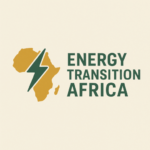In Mozambique’s Cabo Delgado region, natural gas rigs cast long shadows over once-quiet fishing villages. Thousands of kilometres away, South Africa hurries to finalise liquefied natural gas (LNG) import deals as load shedding cripples homes and businesses. Nigeria, Africa’s oil behemoth, sells natural gas as its green lifeline, yet vast swathes of the country remain in darkness.
These examples highlight a growing trend across the continent: investment in fossil gas infrastructure as a perceived solution to persistent energy poverty. Yet this approach raises serious questions about justice, inclusion, and long-term sustainability.
This is not simply a story of megawatts and market share. It cuts deeper, posing a fundamental question for Africa’s energy future: Is natural gas a genuine bridge to a cleaner world, or a detour that leaves millions stranded in poverty and pollution?
The Mirage of Progress
Natural gas is increasingly touted as Africa’s saviour. Proponents claim it offers a quick fix to chronic power shortages and a driver for industrialisation. South Africa’s LNG deals with the US are framed as vital to phasing out coal (IEA Report). Mozambique, atop some of the world’s largest gas reserves, has become a magnet for foreign investment (UNEP Report). Nigeria expands its gas infrastructure, hoping to fuel economic independence and industrial growth (AfDB Report).
Yet behind these bold promises lie harsh realities. Critics from civil society and environmental groups warn that an overreliance on gas risks locking Africa into a high-carbon future (IRENA Report). Gas investments may soon become stranded assets, leaving communities to bear the burden of environmental damage and debt. The promised local benefits—jobs, skills, infrastructure, often fail to reach those most in need.
Human Costs of the Gas Gamble
Natural gas may emit less carbon than coal, but it is far from being a clean energy source. Methane, a potent greenhouse gas, leaks during production and transport. Pipelines and LNG terminals displace communities, scar landscapes, and exacerbate land conflicts.
Mozambique’s gas projects have coincided with rising insurgency and social tensions. Nigeria’s Niger Delta, long a symbol of oil-fuelled environmental devastation, now faces similar challenges with gas. In South Africa, civil society protests highlight that gas isn’t the solution to the country’s energy woes; renewables and energy efficiency are.
Alternatives Within Reach
Africa does not face a binary choice between darkness and gas. Distributed renewable energy—solar mini-grids, wind power, and geothermal, offers scalable, community-centred alternatives. Regional power pools, such as the Southern African Power Pool and West African Power Pool, can bolster cross-border electricity trade and enhance supply security. Investments in battery storage, smart grids, and energy efficiency can build more resilient systems.
Success stories from Mali’s solar projects and Kenya’s geothermal plants show what’s possible when local expertise meets supportive policy.
The Need for Political Will and Financial Support
Global financial architecture also plays a pivotal role. Reports from the African Development Bank and UNEP call for an overhaul in climate finance mechanisms to prioritise community-centred, African-led initiatives. International partners must go beyond pledges and funnel investments into real, shovel-ready renewable energy projects.
The barrier isn’t technology, it’s political will, financing priorities, and global support. Development banks and investors must back African-led renewable projects and capacity building. Governments need policies that incentivise clean energy and protect communities and ecosystems. Civil society has a critical role to play in holding power to account and ensuring the transition leaves no one behind.
Local Capacity Building and Community Empowerment
If Africa is to leapfrog to a clean energy future, deliberate investment in local capacity is essential. Governments should support training programmes for engineers, grid operators, and renewable energy entrepreneurs. Financial institutions must make funding accessible for community-driven renewable projects. Examples from Rwanda’s solar cooperatives demonstrate the potential for inclusive growth.
The Path Ahead: Just Transition or Just Rhetoric?
Natural gas may offer a short-term reprieve, but it cannot form the backbone of Africa’s energy future. Quick fixes rarely last. Without clear timelines and firm transition commitments, gas risks becoming a false dawn, trapping the continent in dependency and environmental degradation.
Mozambique’s gas boom illustrates this risk, with multinational profits often overshadowing local benefits. South Africa’s LNG strategy may stabilise the grid temporarily, but it delays investment in truly sustainable solutions. Nigeria’s gas expansion ignores the vast potential of solar and wind to power its future.
Conclusion: Charting Africa’s Energy Future
A just energy transition for Africa must be shaped by African voices. It should prioritise local ownership, skills, and technological innovation. Mali’s solar farms and Kenya’s geothermal successes show what’s possible when ambition meets action. Scaling these requires political courage, financial backing, and an unwavering focus on equity.
Africa’s energy future stands at a crossroads. The choices made today will shape generations. Will natural gas be a stepping stone to a just, inclusive energy transition, or a stumbling block that locks Africa into a carbon-dependent future?
This is not a question for the distant future. It demands decisions now. Africa’s energy transition must blend ambition with caution, urgency with care. Our future depends on it.
Learn more: Discover more insights at Energy Transition Africa.

